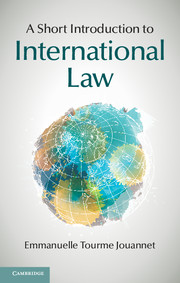1 - International law as history and culture
Published online by Cambridge University Press: 05 February 2015
Summary
International law is a human practice punctuated by a series of changes that have affected its forms and meanings in a process that has been neither linear nor one-directional. It has continually stirred up controversies about its existence and its nature, some of which have become long-standing, others outmoded. International law is comparatively recent law, in that it did not really emerge with the Treaties of Westphalia of 1648 (even if its historiography often cites that date) but later, in the eighteenth century when modern Europe was in its heyday. In this, it is a culture, a European (and more broadly Western) culture, in which law is given an eminent position in the realm of political thought. Ever since the eighteenth century, international law has sought to rule a diverse, plural international society in which resources are unequally shared among states, and populations and individuals are unequally endowed in terms of their wealth, freedom and well-being.
International law was first known as the law of nations before it came to be referred to more frequently as international law in the nineteenth and twentieth centuries. It came into being at the same time as the modern state was being consolidated in Europe, and its initial purpose was to govern the legal rights and duties of states which were considered to be the only subjects of international law. However, it was to be applied to just a small group of European and American states who regarded themselves as the only ones capable of benefiting from international law. It was therefore to exclude three-quarters of the planet for more than two centuries, thereby establishing discrimination among states in terms of their legal standing that is inseparable from its history. Three characteristic features of its historical evolution shall be surveyed here: it was a liberal pluralist system of law made up of a hard core of fundamental rights and duties of states (section I); it authorised states to resort to war individually as a means of settling disputes (section II); and it was reserved to those states that were considered civilised, so making European colonisation of the rest of the world lawful (section III).
- Type
- Chapter
- Information
- A Short Introduction to International Law , pp. 4 - 21Publisher: Cambridge University PressPrint publication year: 2014



